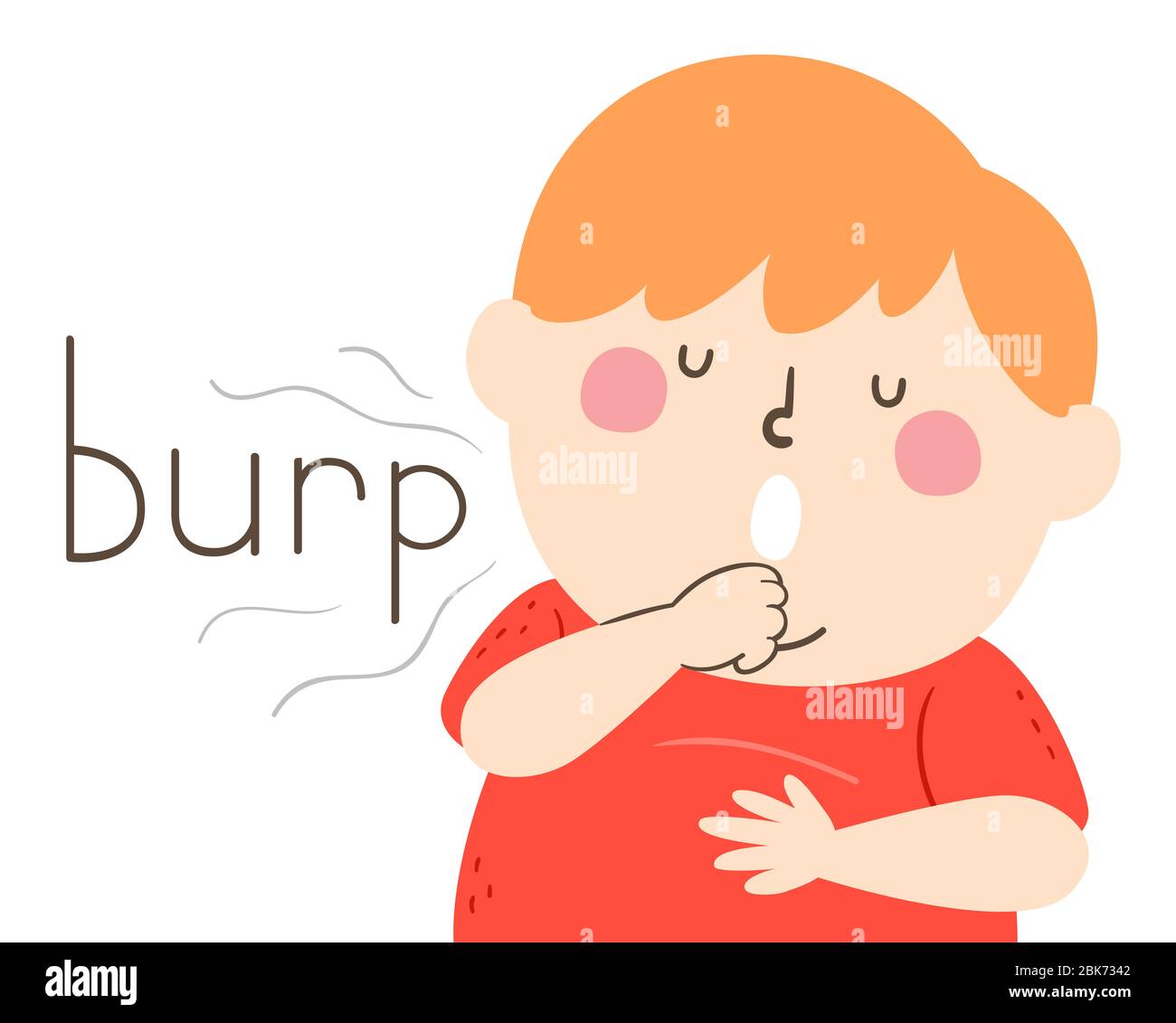Burping Colon Cancer - What You Need To Know
Feeling a little gassy after a meal is quite common, and for many of us, letting out a burp or two, or even four, just feels like a normal part of life. You know, that little release of air from your stomach, that is. Our bodies are constantly doing all sorts of things to keep us going, and sometimes, those actions involve releasing gas. It's just a regular part of how our insides work, really.
But what happens when those burps become a whole lot more frequent, or they just don't seem to stop? It's natural to wonder if something bigger might be going on, especially with all the health information floating around. You might hear stories, or perhaps even see things that make you pause and think, "Could this be something serious?" It’s a very human reaction to feel a bit concerned when your body acts differently than what you're used to, like your usual pattern changing, you know?
This article aims to shed some light on the connection, or lack thereof, between burping and a more serious health concern, specifically colon cancer. We'll talk about what normal burping looks like, what might cause a lot of burps, and when it might be worth paying closer attention to what your body is trying to tell you. We'll also share a personal account that really brings this topic home, so you can get a clearer picture of what to consider.
Table of Contents
- Understanding What Burping Really Is
- Is Burping a Sign of Colon Cancer?
- When Does Burping Hint at Something More Serious Like Burping Colon Cancer?
- Bailey McBreen's Story - A Personal Look at Burping Colon Cancer
- Who is Bailey McBreen?
- Bailey McBreen - Personal Details
- What Other Signs Should You Watch For With Burping Colon Cancer?
- What Steps Can You Take If You're Concerned About Burping Colon Cancer?
Understanding What Burping Really Is
Burping, or belching as some people call it, is just a natural way for air to get out of your body. Think of it like this: your stomach and the tubes leading to it can gather up air, and sometimes that air needs to escape. It's a very common body action, and it can happen quite a bit throughout your day, perhaps even up to thirty times. This is totally normal, you know, for most people.
Most of the time, when you burp, it's because you've swallowed some air. Every single time you take a sip of a drink or chew on some food, you're also taking in a little bit of air along with it. This air then travels down into your stomach. Your body has a system for dealing with this, and burping is one of its ways to push that extra air back out. It's basically your body's way of making sure things don't get too full with air in your upper digestive system, so to speak.
That air that comes out in a burp usually contains things like oxygen, nitrogen, and carbon dioxide. These are just gases that are present in the air we breathe and that can build up inside. So, if you find yourself letting out a few burps, it's often just your system doing its usual job. It's actually a pretty straightforward process, really, when you think about it.
However, there are times when someone might become what we could call a "burping machine," letting out many more burps than usual. This can happen for a few reasons. Sometimes it's because of something called gastroesophageal reflux disease, which people often just call acid reflux. This condition can cause more gas to build up. Other times, it might be related to certain foods you've eaten, or even a habit of swallowing a lot of air without realizing it, which has a medical name, aerophagia. There's also something called supragastric belching, which is another way air can get trapped and then released, so it's almost like a reflex.
So, while a few burps after a meal are perfectly fine, if you're experiencing a lot more than that, it could be a sign that something else is going on with your digestive system. It doesn't mean something bad, necessarily, but it does mean your body is working to get rid of a lot of air. That's why it's good to know what's typical for you and what might be a change, just to be aware.
Is Burping a Sign of Colon Cancer?
This is a question many people ask, and it's a very important one to address directly. For the most part, burping on its own is not seen as a sign that you have colon cancer. It's a common body function, as we've talked about, and it happens to nearly everyone. So, if you're just burping and nothing else seems off, it's usually nothing to worry about in terms of this particular health concern, you know?
In fact, having a lot of burps very rarely points to cancer. More often than not, if someone is burping a great deal, it's more likely connected to things like acid reflux or that gastroesophageal reflux disease we mentioned earlier. These are much more common issues that cause increased burping. So, it's pretty typical for doctors to look at those possibilities first, actually.
The general idea is that burping is usually harmless. It's your body's way of dealing with air. The medical community often points out that burping by itself does not feature as one of the direct signs of colon cancer. This is a key point to remember to avoid unnecessary worry. It's just one of those things that your body does, like blinking or breathing, basically.
However, and this is a very important distinction, if you have burping that just won't go away, and it's happening along with other new or different body changes, then it might be worth paying closer attention. While burping alone isn't a direct sign, persistent burping could, in some cases, point to other issues with your stomach or gut that might, just might, be connected to more serious conditions. But again, this is about the whole picture, not just the burps themselves, so to speak.
A doctor might look at all your symptoms together, rather than focusing on just one. They would consider how often you burp, how long it's been going on, and what other things you're experiencing. This helps them get a complete picture of your health. It’s like putting together pieces of a puzzle, you know, to see the whole image.
When Does Burping Hint at Something More Serious Like Burping Colon Cancer?
While burping alone isn't typically a warning sign for colon cancer, there are specific situations where it might be part of a bigger picture that deserves attention. Sometimes, though not often, if you find yourself burping a whole lot, it could be a sign of certain other cancers, like those in the stomach or the tube that connects your throat to your stomach, which is called the esophagus. This isn't about colon cancer directly, but it shows that excessive burping can sometimes be a signal for other things happening in that general area of your body, you know?
For colon cancer specifically, the link with burping is a bit different. Colon cancer can sometimes cause a sort of block or an obstruction in your digestive system. When this happens, it can lead to more gas building up in your stomach. And what does your body do with extra gas? It tries to get rid of it, often through burping. So, in these cases, the burping isn't the problem itself, but a result of something else going on inside, which is creating more gas than usual. It’s like a chain reaction, basically.
It's very difficult for someone to believe that a simple body function, like burping, could actually be part of a diagnosis for something as serious as colon cancer, especially in a younger person. However, personal stories do exist where burping was one of the symptoms that led to such a discovery. This just goes to show that while burping is usually harmless, it's the pattern and other accompanying changes that really matter, you know?
A study looked at people who had belching along with colon cancer, and it found that this was sometimes seen in men who were 60 years old or older. This suggests that while it's not a common symptom for everyone, certain groups might experience it more often if they have colon cancer. It's just a piece of information that helps doctors understand patterns, apparently.
So, to be clear, if you are burping a lot, and it's happening along with other noticeable changes in your body, especially changes in your stool or how your bowels are working, then it's a different story. It’s not just the burping, but the combination of symptoms that might raise a flag for a doctor. It’s like a puzzle where all the pieces fit together to show something, you know?
Bailey McBreen's Story - A Personal Look at Burping Colon Cancer
Sometimes, hearing about someone's personal experience can really help make sense of health information. There's a nurse from Florida named Bailey McBreen, who was 24 years old when she went through something quite difficult. She had been experiencing nonstop burping, among other peculiar symptoms, for about 18 months. She must have been very worried about what was happening with her body, you know, with all that going on.
What was truly shocking for her was finding out that her constant burping was actually a sign that she had stage 3 colon cancer. This was a very unexpected discovery for her, as she had been dealing with these symptoms for a while without a clear answer. It really shows how some body signals, even common ones like burping, can sometimes point to something much more serious when looked at in the right context and with other symptoms. It's a rather sobering thought, actually.
Her diagnosis of stage 3 colon cancer happened in the year 2023. This came after a long period where she was experiencing these unusual body changes. Her story is a powerful reminder that while burping is usually harmless, if it's persistent and comes with other unexplained symptoms, it's worth getting checked out by a medical professional. It's about listening to your body, so to speak, and not dismissing things that feel off.
Her experience highlights how important it is to pay attention to your body's signals, even if they seem minor at first. It also shows that serious conditions can sometimes present with symptoms that aren't always the ones we expect. This is why doctors always say it's good to get things looked at if you're worried, you know, just to be sure.
Who is Bailey McBreen?
Bailey McBreen is a young woman who worked as a nurse in Florida. Her personal health journey brought her story to public attention. She is a living example of how important it is to listen to your body and seek medical advice when something feels wrong, even if the symptoms seem common or unrelated at first glance. Her experience sheds light on the less common ways that serious health issues might show themselves, you know?
Bailey McBreen - Personal Details
| Age at Diagnosis | 24 years old |
| Occupation | Nurse |
| Location | Florida |
| Year of Diagnosis | 2023 |
| Condition | Stage 3 Colon Cancer |
| Key Symptom Noted | Nonstop belching (burping) |
| Duration of Symptoms Before Diagnosis | 18 months |
What Other Signs Should You Watch For With Burping Colon Cancer?
If you're thinking about burping and its possible connection to something like colon cancer, it's really important to look at the whole picture of what your body is doing. Colon cancer, which is a growth of cells that starts in the large intestine, might not show any signs right away. But if it does, it usually causes more than just burping. These other signs are what doctors pay close attention to, you know?
One of the main things to watch for is changes in your bowel habits. This could mean you're having diarrhea or constipation that lasts for a while and isn't normal for you. It might also involve seeing blood in your stools, which could look bright red or even black. Black stools can sometimes mean there's bleeding higher up in your digestive system. These are pretty significant changes that definitely warrant a conversation with a doctor, basically.
Other common signs that could be related to colon cancer include having frequent gas, feeling bloated a lot, and experiencing pain in your belly area. These symptoms can also be caused by many other less serious things, like overeating or just having an upset stomach, but if they stick around and are different from what you usually experience, it's worth checking out. It’s like your body giving you a series of little nudges, you know?
Sometimes, colorectal cancers can cause bleeding inside your digestive system. This bleeding might not always be obvious, but it can lead to things like stools changing color or shape. So, if you're burping a lot and you also notice that your stools are a different color or have an altered shape, or your bowel movements are just not what they used to be, that's a combination that a doctor would want to hear about. It's about seeing if these different signals are happening together, so to speak.
It’s also good to remember that symptoms like belly pain, heartburn, and feeling very tired can be signs of other things, including stomach cancer. But they can also just be from eating too much, or acid reflux that hasn't been treated, or even not getting enough sleep. This is why it's so important not to jump to conclusions based on just one symptom, but to talk to a doctor who can look at everything together. They can help figure out what's really going on, you know?
What Steps Can You Take If You're Concerned About Burping Colon Cancer?
If you find yourself thinking a lot about burping and whether it could mean something serious, especially after hearing stories like Bailey McBreen's, it's completely natural to feel a bit anxious. Many people experience this kind of worry, and it's okay to acknowledge those feelings. The most helpful thing you can do is to talk to a medical professional, like your family doctor or a stomach specialist, often called a gastroenterologist. They are the best people to help you understand what your symptoms might mean, you know?
When you go to see a doctor, they will want to hear all about your symptoms. This includes how often you're burping, how long it's been happening, and any other changes you've noticed in your body, even if they seem small. They'll ask about your bowel habits, any pain you might have, and generally how you've been feeling. Giving them a full picture helps them figure out what might be going on, so it's very important to be open and honest about everything, basically.
A doctor might suggest certain tests if they have concerns. For example, a colonoscopy is a procedure that checks for colorectal cancer, as well as other issues in the colon, like growths called polyps. This test is a way for them to get a clear look inside your large intestine. It's a common and effective way to check for these kinds of conditions, you know, just to be thorough.
It's also worth remembering that burping is often described by doctors as a "very nonspecific symptom." This means it can be caused by many different things, most of which are not serious. So, while it's good to be aware and to seek advice if you're worried, try not to let anxiety take over. Most of the time, burping is just your body doing its usual thing, getting rid of air, so to speak.
Ultimately, if you have persistent burping, especially if it comes with other new or worrying symptoms like changes in your stool, belly pain that won't go away, or unexplained weight loss, getting a professional opinion is the best step. They can help ease your mind or guide you to the right treatment if something does need attention. It’s always better to be safe and informed about your health, you know, rather than just wondering.
- Adriene Macedo Onlyfans
- Jaimeleecomedy Nude
- Habibi The Restroom Brooklyn Website
- Zoey Goldstein
- Bunniemmie Naked

What Is Excessive Belching A Symptom Of

Belching Causes, Issues, How to Stop Excessive Burping - Dr. Axe

Burp Clipart